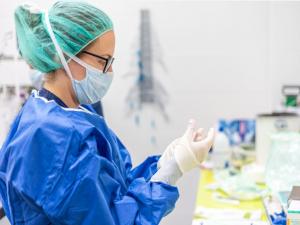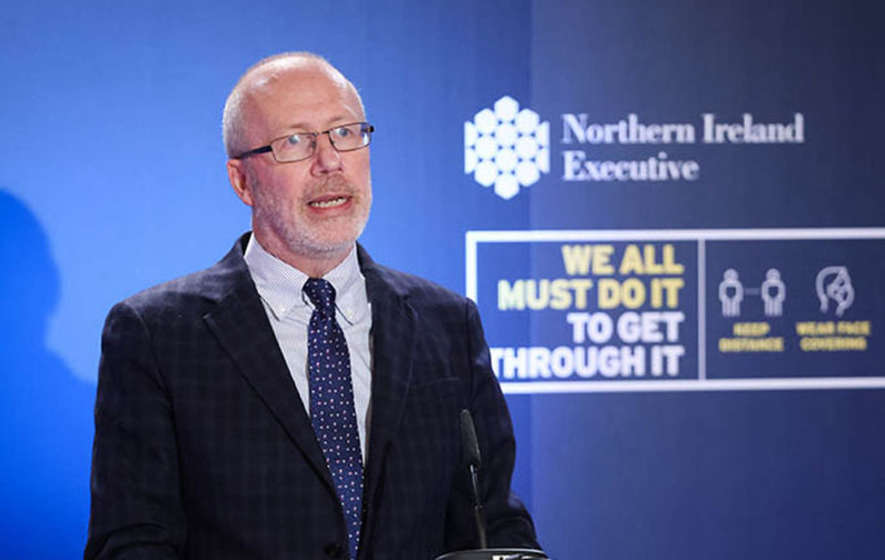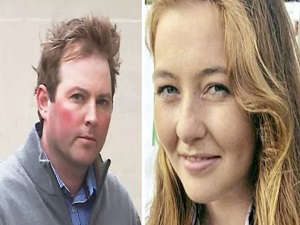
By Q Radio News/PA
The number of confirmed cases of Omicron in Northern Ireland has reached 151, according to the Public Health Agency (PHA).
Dr Brid Farrell, deputy director of public health at the PHA, has urged the public to do what they can to slow the further spread of the variant.
She said: “The confirmation and identification of this variant demonstrates that PHA surveillance systems and the Contact Tracing Service are working.
“It reinforces the need for continued vigilance and adherence to public health guidance. It is essential that people continue to work within the regulations and advice, and get fully vaccinated.
“We know that the vaccine booster can significantly increase protection against Omicron and local health services are undertaking a huge upscaling of the booster programme to support this.
“If you are eligible to receive the booster, please get it. If you haven’t yet had your first or second jab, please don’t delay in getting them as advised.
“We are also urging people to remember the basic steps to help reduce their risk of catching or spreading Covid-19 – take a free rapid lateral flow device test before attending any event or social gathering, wear a face covering, practise good hand hygiene, limit your contacts, keep rooms well-ventilated or meet outdoors when possible, and get vaccinated if eligible, including getting your booster dose.
"These steps will help prevent spread of all variants of coronavirus, including Omicron.”
Sir Michael McBride said he was more concerned now than at any previous point during the pandemic.
He is urging all adults to get a vaccine booster to limit the spread of the variant.
The chief medical officer said: “I think there is cause for very significant concern at this time.
“We still don’t have some key elements of information such as the number of people who get Omicron who end up in hospital.
“I have to say I am more concerned at this stage than I have been at any stage in the pandemic.
“I would ask the public to exercise caution, to follow all of the advice, all of the steps that we know that work.
“We need to get as many people boosted as we possibly can before we see the peak of the Omicron wave.”
UPDATE: NI CMO Sir Michael McBride: "I am more concerned at this stage than I have been at any stage in the pandemic. We need to get as many people boosted as we possibly can before we see the peak of the Omicron wave." #COVID19 #Omicron pic.twitter.com/BqP30yuZAO
— Q Radio News (@qnewsdesk) December 15, 2021
Chief scientific adviser Professor Ian Young said it was “inevitable” that Omicron would spread rapidly in Northern Ireland.
He said: “Omicron presents a new threat. We know that it is significantly more transmissible, probably around two and a half times more transmissible than the Delta form of the virus.
“If we look at what is happening elsewhere in the UK and internationally, we see that once Omicron becomes established, it spreads remarkably quickly.
“The doubling time for cases is around two days in England and Scotland, and it is inevitable that we are going to see the same thing in Northern Ireland.
“As a result of that, we will see increasing numbers of the Omicron virus and they are likely to increase very rapidly.
“It is probably going to become the dominant form of the virus, certainly before the end of this year and possibly earlier than that.
“There are some significant levels of uncertainty.
"The most important of those is the severity of Omicron infection and the extent to which it leads to hospital admission and serious disease.”
 (Chief scientific adviser Professor Ian Young)
(Chief scientific adviser Professor Ian Young)


 Swann refuses to rule out resigning if budget is not changed
Swann refuses to rule out resigning if budget is not changed
 Fresh inquests ordered into deaths of 15 killed in McGurk’s bomb blast
Fresh inquests ordered into deaths of 15 killed in McGurk’s bomb blast
 Trial ends after man accused of murder of young showjumper is found dead
Trial ends after man accused of murder of young showjumper is found dead
 A brief hearing and chaotic scenes as Donaldson makes first court appearance
A brief hearing and chaotic scenes as Donaldson makes first court appearance